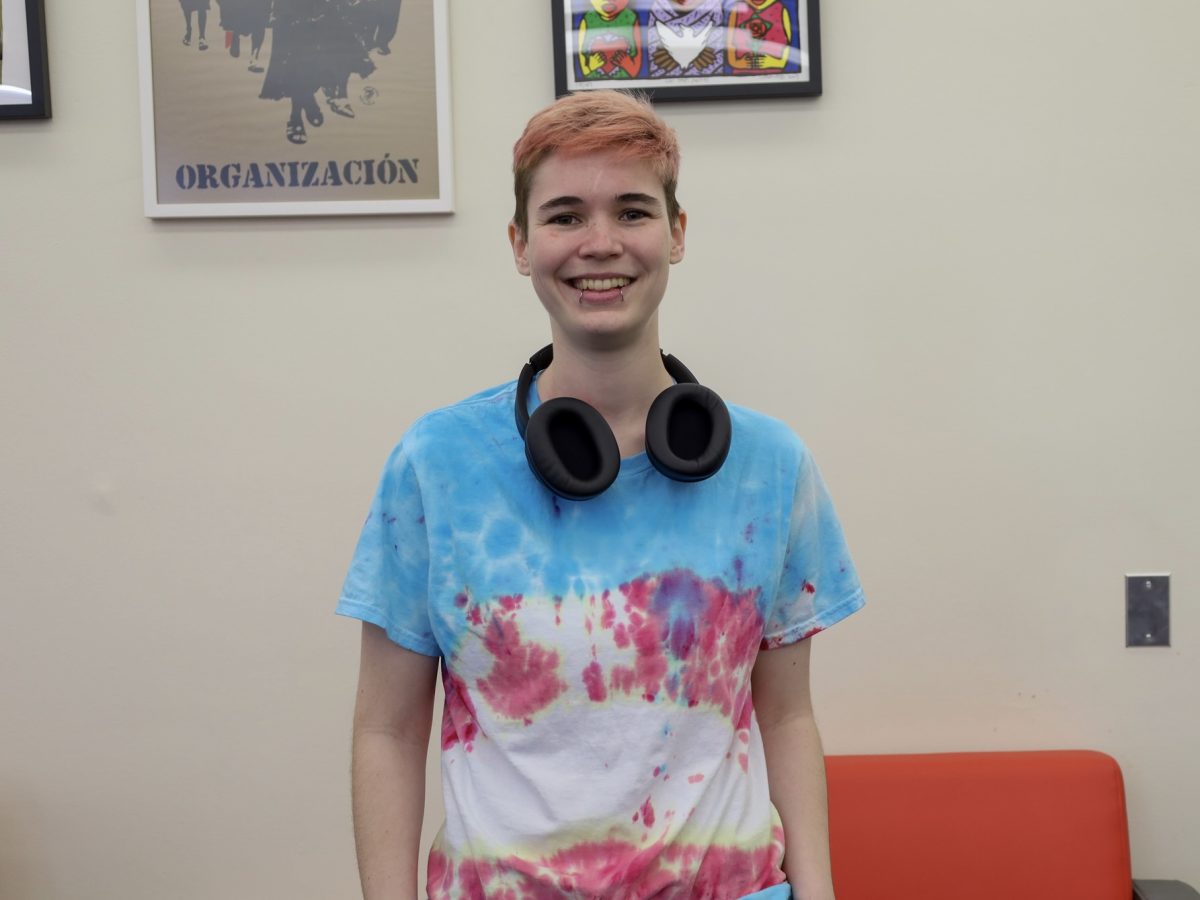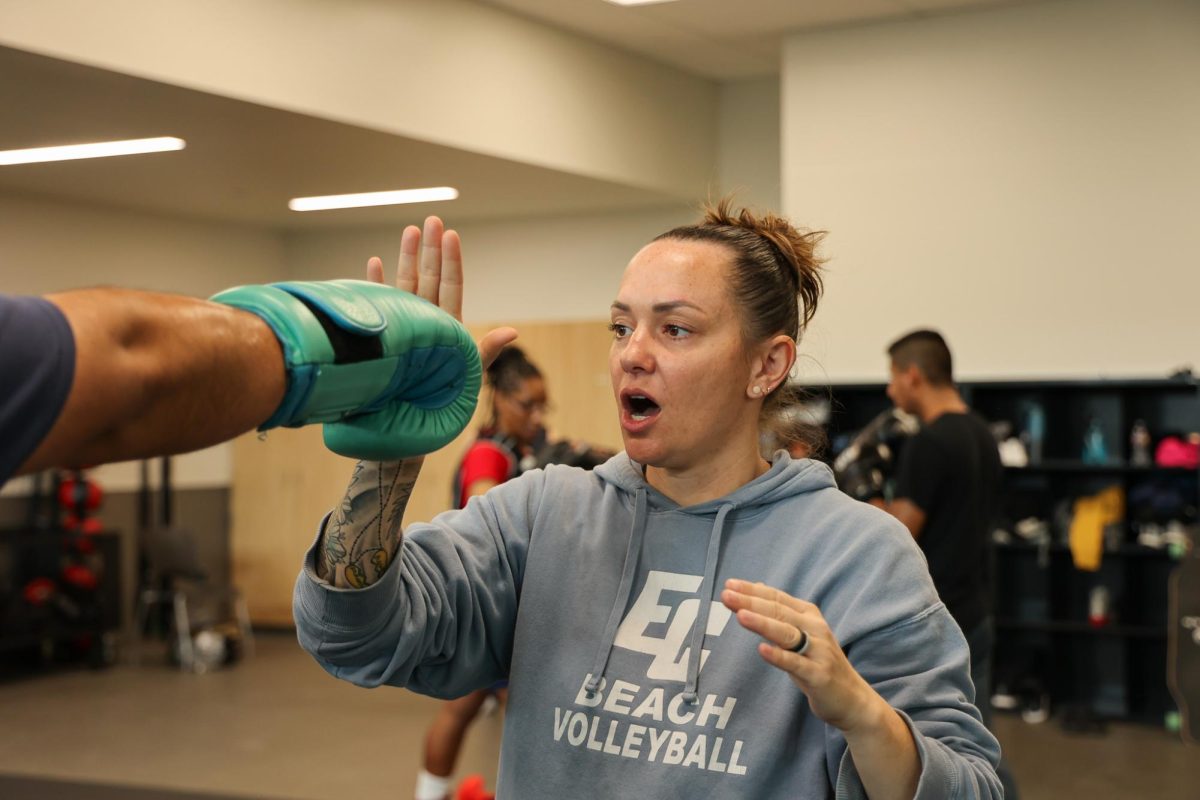It can get us anywhere. It’s drifting through the air. Creeping in filthy alleys. Lurking in every classroom on campus.
You aren’t safe with your friends or your family. Beware the terror of … becoming sick!
The health of students is threatened, with the cold weather coming, actor Dustin Hoffman is not on campus to pull the moves he did in the film “Outbreak,” and the additional horror of the shortage of flu shots.
“We’re not quite seeing it yet,” coordinator of the student health services Debbie Conover said, “I think probably within the next month or so we are going to see an influx of students who have the flu as a result of not getting the flu shot.”
Even more terrifying, students seem to have a high risk of getting the sniffles and coughs due to their busy schedules.
With going to school, working, and playing, there’s not enough hours in the day to get it all done, contemporary health professor Tom Hazell said.
“They push themselves to their limits, physical limits, psychological limits,” Hazell said. “Because of that it runs them down a little bit, which makes them more susceptible to picking up different types of flus and colds.”
Should we break out in a panic now? Lock our doors and confine ourselves to the nearest clean corner? Nay, there’s a way to combat the flu, as well as the other microscopic miscreants! It starts with good eating habits.
“You want to keep your body nourished during this time, so you’re not compromising your immune system,” Conover said.
This involves eating food from the four basic food groups. Don’t count on Skittles to replace your fruits and vegetables, because junk food doesn’t provide the body with what it needs to build up defenses against the flu or an infection, Conover said.
“People’s immune systems are compromised in part because they’re not getting enough sleep,” Conover said.
Even though the approximate hours of sleep one should get is eight to 10 hours of sleep, the amount of time one should spend visiting slumberland depends on the individual person, Conover said.
“The bottom line is not to get run down, not to get to the point of exhaustion,” Conover said.
Film major Emmanuel Martinez, 30, said most of the time he gets a good night’s sleep; but school, work, and everything in between keeps him occupied.
“A good night’s sleep is not always possible,” Martinez said, “If I can get four to five hours a night, I’m good to go.”
Another method of staying healthy is reducing stress, which can be achieved through jumping jacks and sit ups.
“They need stress reducers,” Hazell said. “Exercise and fitness activities are two really great areas that help you balance your life out.”
Staying healthy is why Philip Dragotto, management information systems major, frets little about becoming sick.
He said that as long as he keeps up with his health, with the right amount of sleep, healthy foods, and drinking plenty of fluids, he doesn’t have to worry as much.
“Your body builds up resistance to all these diseases by basically staying healthy,” Dragotto said. “So I really don’t worry at all a lot.”
Zinc tablets have been found to be a helpful reinforcement in shortening the duration of colds if one takes them within 24 hours of when symptoms start to appear, according to an article in Medical News Today.
But like death and taxes, sickness is guaranteed, no matter how healthy one tries to stay. What then can students do once their immune system is down?
“Probably the best thing to do is to have enough awareness of your body to know that maybe you are coming down with something,” Hazell said.
A lot of people wait to treat a sickness, then it engulfs them and knocks them out of commission, Hazell said.
“If you start to feel something coming on, take active steps right then to help curtail it,” Hazell said.
One option students have to treat their sickness is go to the El Camino Health Center.
The Health Center does everything your doctor or primary medical center would do, and there’s no fear of a long wait since the average waiting time is five to 15 minutes, Lee said. There’s also a perk in medication.
“We offer low-cost antibiotics,” Conover said. “So if we get it free, you guys get it free. If we get it cheap, you get it cheap.”
Lee also offers a final piece of advice tostudents who are ill.
“If somebody is really sick, they have a fever, and they’re coughing, for God’s sake, don’t come to school and share it with everybody,” Lee said. “Stay home.”
Health Tips
Avoid close contact with people who are sick. When you are sick, keep your distance from others to protect them from getting sick, too.
If possible, avoid work, school, and running errands when you are sick. You will help prevent others from catching your illness.
Four antiviral drugs (amantadine, rimantadine, zanamavir and oseltamivir) have been approved for treatment of the flu. If taken within two days of getting sick, these drugs can reduce the symptoms of the flu and shorten the time you are sick by one or two days. They can also make you less contagious to others. All of these drugs must be prescribed by a doctor and taken for five days.
The nasal-spray flu vaccine-a vaccine made with live, weakened flu viruses that do not cause the flu (sometimes called LAIV for “Live Attenuated Influenza Vaccine”). The vaccine change each year based on international surveillance and scientists’ predictions about which types and strains of viruses will circulate in a given year. About two weeks after vaccination, antibodies that provide protection against influenza virus infection develop in the body.
-Source: CDC






